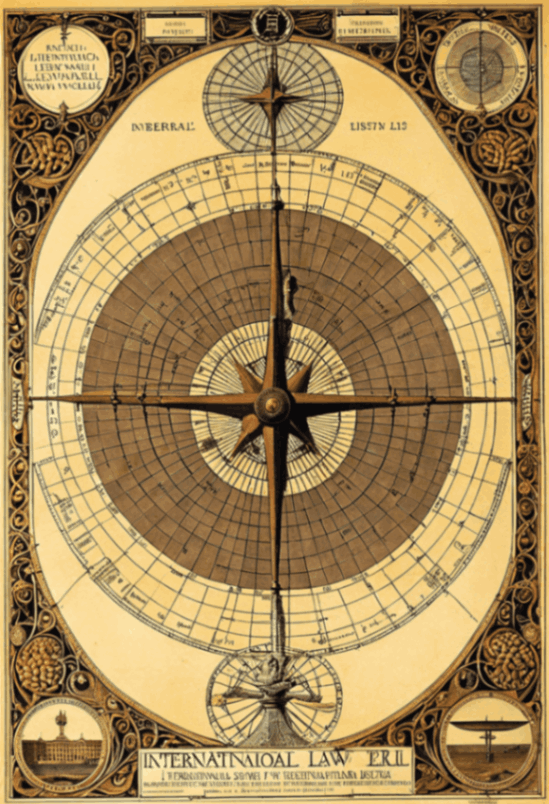

The historical development of international fisheries law is a fascinating tale that weaves through centuries of maritime tradition, conflict, and cooperation. It's not just about fish; it's about people, nations, and the ever-changing dynamics of power and environment.
Back in the day, there wasn't much regulation in fishing. extra details available check below. Coastal communities fished freely, taking what they needed without much thought for tomorrow. But as global trade grew and technology advanced, so did the pressure on fish stocks. Nations started to realize that their waters were not inexhaustible after all oh no! The idea that oceans could be overfished was initially met with skepticism.
In the early 20th century, countries began to see the need for some kind of agreement or framework to manage these shared resources better. It wasn't until after World War II that serious attention was given to this issue at an international level. The 1946 International Convention for the Regulation of Whaling marked one of the first attempts to regulate marine resources globally.
However, it wasnt until 1982 when things took a big leap forward with the United Nations Convention on the Law of the Sea (UNCLOS). This landmark treaty established exclusive economic zones (EEZs) extending 200 nautical miles from a country's coast. Within these zones, coastal states had sole rights over marine resources but also responsibilities for their conservation.
Did everyone agree right away? Not really. Some countries weren't too happy about giving up traditional fishing grounds or accepting restrictions imposed by others. Negotiations were long and often contentious.
As fisheries management evolved, regional agreements became crucial too. Organizations like the North East Atlantic Fisheries Commission (NEAFC) or Western Central Pacific Fisheries Commission (WCPFC) emerged to tackle specific challenges within certain areas. These bodies helped bridge gaps between national interests and collective responsibility.
But lets not forget enforcement - a major sticking point! Without proper monitoring and compliance mechanisms, laws are pretty much useless. Illegal fishing remains a significant problem despite all efforts made thus far.
In recent years though there's been greater emphasis on sustainability - finally! Concepts like ecosystem-based management have gained traction emphasizing not just individual species but entire ecosystems' health when making policy decisions.
To sum up: while we've come quite far from those unregulated days where anything went out at sea; international fisheries law continues evolving facing new challenges along its way ensuring future generations can enjoy our oceans bounty responsibly... hopefully without repeating past mistakes!
When discussing key international treaties and agreements in fisheries management, it's important to recognize how vital these frameworks are for the sustainability of our oceans. Without such cooperation across borders, overfishing would not just be a problem; it would be a catastrophe. So, let's dive into some of the most significant agreements that have been made.
First off, we have the United Nations Convention on the Law of the Sea (UNCLOS). This treaty ain't something you can overlook. It establishes guidelines for how nations should use marine resources and outlines exclusive economic zones (EEZs) where countries have special rights regarding exploration and use of marine resources. It's like giving each country its own piece of ocean pie, but still emphasizing they can't do whatever they want with it.
Another essential agreement is the Fish Stocks Agreement (FSA), which supplements UNCLOS. The FSA aims at ensuring the long-term conservation and sustainable use of straddling fish stocksthose that migrate across EEZs and high seasand highly migratory fish stocks. You'd think that managing fish that cross boundaries would be super complicatedand you'd be right! But this agreement helps make sure everyones playing by similar rules.
Then there's the Convention on International Trade in Endangered Species of Wild Fauna and Flora (CITES). CITES doesn't focus solely on fisheries, but its role in regulating trade in endangered species includes many marine creatures. Without CITES, we might actually see more exploitation of endangered species due to international trade pressures.
Let's not forget Regional Fisheries Management Organizations (RFMOs), which play critical roles too. These organizations bring together countries sharing interests or geographic regions to manage specific fish stocks collectively. For example, the International Commission for the Conservation of Atlantic Tunas (ICCAT) monitors tuna populations inyou guessed itthe Atlantic Ocean! RFMOs ensure a localized approach while adhering to broader international standards.
One can't talk about fisheries management without mentioning The Code of Conduct for Responsible Fisheries by FAO (Food and Agriculture Organization). Although not legally binding, this code provides principles and standards applicable globally to ensure responsible fishing practices are maintained.
Okie dokie, now lets flip to some recent efforts like The Port State Measures Agreement (PSMA). PSMA is designed to prevent illegal, unreported, and unregulated fishing by ensuring vessels entering ports follow strict regulations. Illegal fishing harms both ecosystems and economies alikeso agreements like PSMA are crucial!
However comprehensive these treaties may seem thoughtheyre far from perfect solutions. Many challenges persist due to lackluster enforcement or differing national priorities clashing with collective goals.
So yeahnot all issues are fully addressed yet but ignoring these treaties altogether? That wouldnt help anyoneespecially not our oceans teeming with life needing protection from human greed.
In conclusion thenits clear: Key international treaties & agreements form an indispensable part when talking about global fisheries management strategyeven if they're sometimes imperfectly implemented or occasionally ignored altogether!
The Role of Regional Fisheries Management Organizations (RFMOs) in fisheries management is a topic that doesn't get the attention it deserves. In essence, RFMOs are crucial for the sustainable use and conservation of fish stocks that traverse national jurisdictions or are found in international waters. These organizations, which include bodies like the International Commission for the Conservation of Atlantic Tunas (ICCAT) and the Western Central Pacific Fisheries Commission (WCPFC), ain't just bureaucratic entitiesthey're fundamental players in global fisheries governance.
First off, RFMOs serve as platforms where multiple countries can come together to discuss and agree upon measures for managing shared fishery resources. Without such a collaborative approach, nations would probably end up overexploiting these resources, leading to what we call "the tragedy of the commons." So, while individual countries have their own regulations, it's RFMOs that ensure there's a cohesive strategy across borders. This aint something you can achieve through unilateral actions.
But hey, let's not kid ourselvesRFMOs aren't without their flaws. They often face challenges like lackluster compliance from member states and insufficient enforcement mechanisms. Imagine trying to herd cats; that's pretty much what it's like getting all member states to play by the same rules! And dont even get me started on how some nations prioritize short-term economic gains over long-term sustainability.
On top of that, scientific research and data collection are essential components of effective fisheries management. RFMOs coordinate these efforts among member states to build comprehensive databases on fish populations and ecosystems. This data serves as the backbone for setting quotas and other regulatory measures aimed at preventing overfishing. But oh boy, if only everyone adhered strictly to those guidelines! Sometimes data gets ignored or misinterpreted due to political pressures or conflicting interests.
However, despite these hurdles, its undeniable that RFMOs play an indispensable role in safeguarding our marine resources. They provide a forum for dispute resolution among fishing nationsa crucial function given how contentious fishing rights can be. Plus, they facilitate capacity-building initiatives aimed at enhancing monitoring and compliance capabilities among less-developed member states.
Another significant contribution is their work on combating Illegal Unreported and Unregulated (IUU) fishing activities which pose a massive threat to sustainable fisheries management worldwide. By adopting stringent measures such as Vessel Monitoring Systems (VMS) and Port State Measures Agreements (PSMA), RFMOs strive to curb this menace effectively.
To wrap things up: while they may not be perfectand lets face it, what organization is?RFMOs are instrumental in fostering international cooperation for sustainable fisheries management. They help bridge gaps between differing national policies through collective decision-making processes based on sound scientific principleseven if sometimes those decisions arent fully implemented as intended!
So yeah folksits high time we recognize both the achievements and limitations of these organizations because when it comes down to ittheyre pretty much indispensable for preserving our ocean's bounty for future generations!


Sure, heres a short essay on Compliance and Enforcement Mechanisms in Fisheries Management:
---
Fisheries management is not an easy task. It involves balancing the needs of the fishing industry with the health of marine ecosystems. One crucial aspect to get this balance right is compliance and enforcement mechanisms. However, it's not always straightforward to make sure everyone follows the rules.
First off, compliance mechanisms are essential for setting up guidelines that fishers must follow. These might include quotas on how much fish can be caught or restrictions on certain types of fishing gear. Without such regulations, overfishing would quickly become a problem and we dont want our oceans depleted, do we? But getting everyone onboard isnt simple; some folks just don't see the bigger picture.
Enforcement mechanisms come into play when these regulations aren't followed. This could mean fines for those who break the rules or even shutting down operations that consistently flout them. The idea is to create deterrents strong enough to make folks think twice before ignoring regulations.
You'd think with all these measures in place, everything would run smoothly, but oh no! There are still challenges aplenty. For starters, monitoring vast ocean areas ain't exactly a walk in the park. Technology like satellite tracking helps, but it can't cover every inch of water at all times.
Moreover, there's also the issue of international waters where jurisdiction gets murky. Different countries have their own rules and enforcing compliance across borders requires cooperation that isn't always forthcoming.
Then theres human nature itself some people just won't follow rules no matter what you do! It's frustrating because non-compliance by a few can harm efforts made by many others who are trying to fish responsibly.
Community involvement plays a role too; local communities often know best what's happening in their waters. Engaging them in fisheries management ensures better adherence to rules and helps spot violators quicker than any government agency could alone.
In conclusion, while compliance and enforcement mechanisms are indispensable for effective fisheries management, theyre far from foolproof. Challenges like monitoring difficulties and international cooperation issues persistently complicate matters. Still, by combining technology with community engagement and strict penalties for rule-breakers, we can hope to strike a balance that's beneficial for both fish populations and those reliant on them for livelihood.
So yeah, it's not perfect - but hey - who said saving our oceans would be easy?
---
Sure, heres a short essay on Challenges in International Fisheries Management:
---
International fisheries management ain't no easy task. It's filled with all kinds of challenges that make it difficult to effectively manage fish stocks across the world's oceans. First off, there's the issue of overfishing. Many countries don't practice sustainable fishing methods, and as a result, fish populations are depleting faster than they can reproduce. This isnt just bad for the environment but also for local communities that rely on these resources for their livelihoods.
Then you've got the problem of illegal, unreported, and unregulated (IUU) fishing. These rogue operations often ignore international laws and quotas designed to protect marine life. They're not only hurting fish populations but also undermining efforts by honest fishers who follow the rules. Oh boy, it's frustrating!
Another big challenge is the lack of cooperation among nations. Oceans don't have borders like countries do, so managing them requires collaboration on an international scale. However, geopolitics gets in the way more often than not. Countries have conflicting interests and priorities which makes it real hard to come to any sort of agreement.
Climate change is another headache that's complicating things even further. Rising sea temperatures and ocean acidification are altering marine ecosystems at an alarming rate. Fish species are migrating to cooler waters or dying off altogether because they cant adapt quickly enough to these changes.
Technology's both a blessing and a curse when it comes to fisheries management too! On one hand, advanced tracking systems help monitor fish stocks better than ever before; on the other hand, sophisticated fishing gear allows boats to catch way more fish than they should be able to sustainably harvest.
Finally funding woes! Effective fisheries management isn't cheap; it requires substantial financial investment for research, monitoring systems, enforcement measures etc., which many nations simply can't afford or dont prioritize sufficiently.
In conclusioninternational fisheries management faces numerous tough challenges that need collective action from all corners of globe if were ever gonna see some positive change happen anytime soon!
---

Sure, here's the short essay with the suggested characteristics:
---
Case Studies of Successful International Cooperation for Fisheries Management
When we talk about international cooperation in fisheries management, it's not always a smooth ride. But hey, there are some pretty good examples out there that show how countries can actually get their act together to manage fish stocks effectively.
One prime example is the Northwest Atlantic Fisheries Organization (NAFO). Now, you wouldn't think that a bunch of countries could agree on something as complex as managing fish stocks, right? Well, NAFO proves otherwise. Canada, the European Union, Japan and others have come together under this organization to manage and conserve fishery resources in the northwest Atlantic Ocean. It's not like they never had disagreements oh boy, they did! but they've managed to work things out through negotiations and scientific advice.
Then there's the case of Pacific Salmon Treaty between the United States and Canada. This one's been around since 1985 and its goal is pretty straightforward: ensure sustainable harvests of salmon. You'd think it would be impossible with both nations having different interests at stake but guess what? They've made it work by focusing on mutual benefits and shared responsibilities.
Another shining example is the Convention for Conservation of Antarctic Marine Living Resources (CCAMLR). Established in 1982, it includes members from all over like Australia, Argentina and Russia among others. CCAMLR's aim ain't just about fishing; it's also about maintaining ecological balance. They use an ecosystem-based approach which means they consider impacts on all species when setting quotas or restrictions. Its not perfect but still a significant step towards responsible fisheries management.
Oh! And let's not forget Regional Fisheries Management Organizations (RFMOs) which play crucial roles too! These organizations cover specific areas or types of fish like tuna or swordfish across international waters where no single country has jurisdiction alone.
So yeah, while we can't say everything's hunky-dory in international fisheries management scene there are definitely issues left unsolved these case studies highlight that cooperation across borders isn't just wishful thinking after all!
Whether its through formal treaties or regional bodies working together despite differing national interests - successful examples do exist proving collective efforts can achieve sustainable outcomes for our global fisheries resources if only we try hard enough!
Fisheries management has always been a challenging endeavor, and as we look towards future directions and innovations in global fisheries governance, it's clear that there's no shortage of ideas. One can't help but feel excited about the potential for positive change, even though some hurdles remain.
Firstly, we ain't gonna ignore the importance of technology. Innovations such as satellite tracking and AI-driven data analysis are revolutionizing how we monitor fish populations and illegal fishing activities. It's not just about catching the bad guys; these tools can provide real-time insights that help us make better decisions on quotas and sustainable practices.
But hey, technology alone won't solve all our problems. There's a growing recognition that community involvement is crucial. Local fishermen often possess invaluable knowledge about their ecosystems that top-down approaches can't replicate. Encouraging participatory management models where local communities have a say in decision-making processes could lead to more effective and equitable outcomes.
Interestingly enough, international cooperation is another area ripe for innovation. The high seas dont belong to any one nation, so unilateral efforts won't cut it when dealing with issues like overfishing or climate change impacts. New treaties focusing on shared responsibilities and benefits could pave the way for more cohesive actions across borders.
Oh! Let's not forget about market-based solutions either. Eco-labeling and certification programs have started gaining traction among consumers who care about sustainability. It's not just a fad; people actually want to know where their seafood comes from and whether it was caught responsibly.
However, despite these promising trends, there are still significant obstacles. For instance, enforcing regulations remains a daunting task in international waters where jurisdictional ambiguities exist. And let's face itpolitical will isn't always aligned with environmental imperatives.
Moreover, addressing climate change's impact on fisheries requires unprecedented levels of adaptation and resilience planning. Species migration patterns are shifting due to warming oceans, complicating traditional management strategies that were never designed to handle such dynamism.
In conclusion (yeah I know everyone says this), while there's no silver bullet for the complex challenges facing global fisheries governance today, the convergence of technological advancements, community engagement, international cooperation, market incentivesand yesa bit more political will might just steer us in the right direction eventually.
So here's hoping!